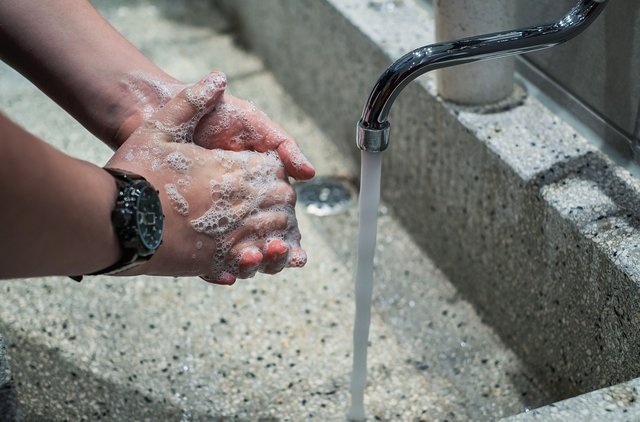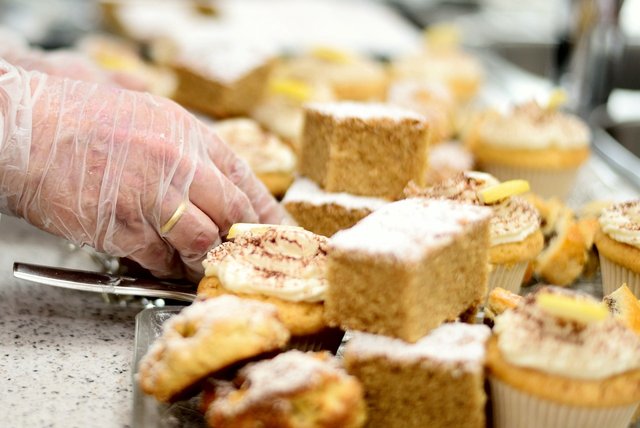Health Matters (11); HYGIENE
Health Matters (11); HYGIENE
.png)
Showering or bathing cleans the body thoroughly, chlorinates all dirt, oily secretions, and sweat, and preserves the integrity of underlying layers of the dermis and epidermis. It is specifically critical after a workout or when there is a lot of perspiration. It is recommended that the face be washed with a gentle foaming solution at least once a day to eliminate excessive makeup, dirt, and oils that could cause pore blockage and several other skin issues.
Your hair can not only collect debris and dirt but also oil and even dandruff, therefore, washing it now and then is essential. But it can be washed every 2-3 days as per the typical skin hair type and its texture. Additionally, it is advised to clip and cut nails regularly to prevent accumulated dirt and any possible injury to the skin. Dirt which can cause bacterial growth should also be cleaned underneath the nails.

By regularly brushing and flossing, you enhance gum health and reduce your chances of developing cavities and bad breath. Moreover, neglect of oral hygiene has also been connected to diseases such as heart disease.
Also, hygiene may contribute to one’s overall mental health as it can alleviate stress and increase confidence due to a person's ability to feel comfortable in social situations.
Finally, proper hygiene can be viewed as self-defense as well since it limits the likelihood of germs being spread to loved ones or colleagues.
Wash your hands carefully using soap and water for a minimum of 20 seconds when necessary such as after the toilet, before meals, and after contact with public items. This takes care against decay, periodontal disease and halitosis. Make it a habit to use floss everyday to clean the plaque and food debris from Interdental surfaces.
Bathing or showering obviously keeps the body in a clean state by removing sweat, dirt, oils, and preventing skin infections. This is particularly useful in instances where one has engaged in physical activity or perspiration. Every day, use a gentle facial soap or clients that would take off all dirt, oil, and make-up debris, which can otherwise result in pores becoming clogged leading to skin complications in the form of acne.

Regular shampooing is essential to prevent the scalp from becoming dirty and oily, and to keep it free of excessive oil, dirt and flakes from dandruff. The frequency of washing is reliant on individual’s hair characteristics; most of times, washing every two to three days is recommended. In addition, your fingernails can collect dirt, and regular nail clipping is helpful to avoid possible injuries. It is also important to wash underneath the fingernails for dirt that might foster the growth of bacteria.
Hygiene is very crucial in determining the interpersonal interaction as it helps to establish on how the persons see each other and the comfort that they have with the other person. Best hygiene practices will have an effect on other people as it is evident that one values himself and other people. When attending an interview, a date or just meeting with unfamiliar people it is crucial to look neat and clean as it helps create good first impression.
Hygiene is essential so that others are not hurt as a result of bad smell or chances of spreading infections to people. A clean environment and the practice of good standards is a prerequisite in any social situation which engenders mutual respect. Having closer proximity to a dirty person will never be comfortable for any individual. A person with good hygiene will leave very few offensive smells making even basic contact, speaking, or being in a close space comfortable and easy.
As all cultures develop over time, so do their standards of hygiene. Norms, habits, and values about what it means to be clean are based on factors that are historical, climatic, and social. Some cultures consider the act of bathing every single day as important, while in other cultures, such acts are considered inessential and are done less frequently due to varied beliefs on the washing’s benefits. For example, in Japan, many people believe it is a daily bath that is sometimes accompanied by hot water, whereas in other European nations, though bathing is accepted, there is insufficient focus on doing it every day and emphasis is placed more on other cleaning review methods.
It is standard practice in many societies, particularly in western ones, to wash one’s hands prior to eating or after visiting the toilet. Rarely, however, are the methods, the frequency, and the motivation for doing so similar everywhere. Many Muslim countries have made hand-washing part of the culture due to the Muslim faith, which emphasizes the importance of washing before meals and prayers. The same can be said for many Indian adults as palm washing became ritualized as part of the etiquette one observes before eating.
The act of drawing water from a toilet has a different interpretation in various quarters of the world. For example, in most of Asia and the mid-eastern regions, it’s common to see people using water for ablution which could be provided through the use of a bidet or a small water container referred to as lota in South Asian countries.
Hygiene is very essential to controlling the spread of various diseases because it prevents the transmission of infectious germs, bacteria, and viruses. Direct contact, airborne, or surfaces are the main media through which many diseases are spread.
I invite them to participate in this contest @yonaikerurso @eveetim @ngoenyi
Personal hygiene is very important as it enhances our overall wellbeing. Thank you for the invitation.